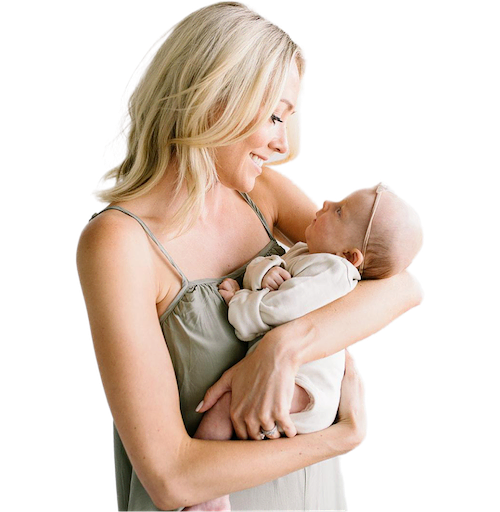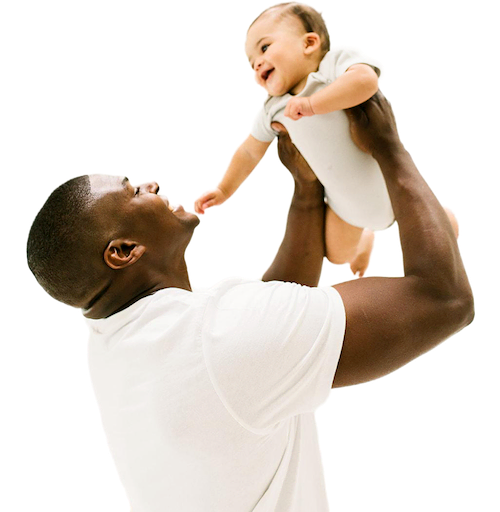Is your baby falling asleep while nursing? Let’s talk about why your baby falls asleep at the breast or bottle and how to help keep them awake for good, full feedings.
Why do babies fall asleep while nursing or bottle feeding? anchor
Babies may fall asleep at the breast or bottle because:
Feedings are happening near the end of a wake window.
Snuggling with you while eating feels comfortable and conducive to sleep.
Breastmilk includes hormones that promote relaxation in babies, which often makes them sleepier.
The environment is set up to cue your baby’s brain that it’s time for sleep (dark room, sound machine is on, etc).
Your baby associates feeding with sleep.
Your baby was looking for closeness and comfort rather than calories.
Should I worry if my baby falls asleep every time they nurse? Why would I want to keep my baby awake during feedings?anchor
Falling asleep while nursing isn’t always a problem. If your baby falls asleep nursing and you’re all thriving, you can continue to do what’s working for you.
However, here are a few reasons it can be helpful to keep your baby awake during feedings:
When your baby stays awake during a feeding, it promotes a full feeding. Full feedings help your baby get adequate daytime calories, which allows for more consolidated night sleep.
Staying awake at the breast or bottle helps with sleep pressure. When babies doze off during feeding, that little nap steals from their tired tank™ and makes it harder for them to fall asleep and stay asleep.
When babies are able to fall asleep on their own, they’re often able to get more restful sleep. On the other hand, babies who fall asleep while eating often struggle to connect sleep cycles, which means they take shorter naps and have trouble staying asleep at night. They often wake up between sleep cycles and want a feeding to return to sleep.
If feeding to sleep is your only option, I’m here for you! In my classes, I’ll teach you developmentally appropriate strategies to help your baby fall asleep independently and get the sleep they need. Let me show you how to set up your days and nights for feeding and sleep success whether you have a newborn (0-4 months) or an older baby (5-24 months).
How do I keep my baby awake for a feeding?anchor
If your baby falls asleep while nursing or bottle feeding, here are some great strategies to try:
Start with a diaper change to help your baby wake up a bit. You might also add in a diaper change halfway through the feeding.
Undress your baby (with only a diaper on them) and let them be skin-to-skin during feeding. Skin-to-skin contact encourages sucking and helps keep your baby awake while feeding. This is great for both breast and bottle-fed babies.
Keep the lights on while feeding. Open up those curtains to let the daylight shine in!
Try rubbing a damp cloth on your baby’s face and chest.
Take a quick break and lay your baby down in the middle of the floor. Sometimes just being away from your warm body will wake them up a bit.
Ensure that your baby has a proper latch.
Offer a feeding at the beginning of a wake window if possible.
Talk to your baby or let them hold a small rattle/crinkle toy to keep them stimulated.
If your baby is often falling asleep during their bedtime feeding, you can move the feeding to one of the first steps in the bedtime routine.
If it feels impossible to keep your baby awake during a feeding or if feeding to sleep is the only way to get your little one to sleep, my classes can help. Each of my classes will give you developmentally appropriate tools to teach your baby to fall asleep more independently, get those important full feedings, and help you all get the rest you need to thrive.
FAQs: Falling Asleep While Nursing or Feedinganchor
-
It’s possible. However, your baby falling asleep while at the breast could also indicate that they were too tired to eat well or simply weren’t hungry enough to take a full feeding.
Here are some signs that your baby is full after a feeding:
-
They pull away and become uninterested in continuing to feed.
-
They may close their lips and refuse to open their mouth.
-
Their body is relaxed (hands are open instead of curled into fists).
-
They are content until their next feeding (about 2-3 hours later).
-
If you lift up your newborn’s arm, it drops heavily instead of your newborn pulling it back towards their body.
-
-
I know that this can be so exhausting. When my daughter was a baby, I truly assumed that every cry meant that she was hungry. Here is what I learned: When babies want to nurse constantly, we need to ask a few questions:
-
Is my little one showing hunger cues or simply fussing?
-
Is it possible that my newborn is snacking instead of taking full feedings?
-
Is my baby nearing the end of a wake window and flashing sleepy cues?
-
Is this simply a desire for comfort nursing/non-nutritive sucking to help them fall asleep?
Now, even when we get wake windows just right and we are aiming for full feedings, some babies do want to nurse constantly. If this is you and your baby, I want you to check in with your pediatrician or lactation specialist. Sometimes this can be a sign that our babies need more help and are struggling with things like reflux.
-
-
A baby falling asleep independently is so helpful in learning to sleep through the night.
Here are some tips to keep a baby awake while being held upright after daytime feedings:
-
Turn your baby away from you and walk around the house, look in the mirror, or show them toys.
-
Babywear with baby in an upright position (turned outward when age appropriate).
-
Use an exersaucer or baby jumper (when age appropriate).
-
Prop your baby up on your legs with your knees elevated and talk to them.
At bedtime, offer a feeding before bath time. Many bathtubs naturally hold baby in an upright position, so it serves as a great activity to break up feeding and sleep while still maintaining the position necessary to decrease reflux concerns.
For night feedings, your little one will, most likely, fall asleep while being held upright. This is okay and to be expected.
*Please Note: Certain positions, such as in a swing or car seat, can cause pressure on the stomach and make reflux symptoms worse. Try to avoid car seats and swings for 20-30 minutes after a feeding.
-
-
I know it can be frustrating if your baby wakes up as soon as you lay them down. The truth is that babies often wake when laid in the crib because of the major shift in environment. They were snuggled tight in your warm arms, and now they’re on a cool, flat surface. It simply doesn’t feel the same. If your baby falls asleep in your arms and you want to lay them down for sleep, try holding them for a few more minutes to ensure they’re fully asleep. Then, when you lay them down into the crib, keep your hand on their chest for a minute or two to help ease the transition.
When you’re ready to help your baby learn to fall asleep independently rather than nursing or feeding to sleep, know that I’m here to help. My classes will teach you developmentally appropriate strategies to work on independent sleep whether you have a newborn (0-4 months), baby (5-24 months), or toddler (2-4 years). You don’t have to rely on nursing to sleep as your only strategy.




